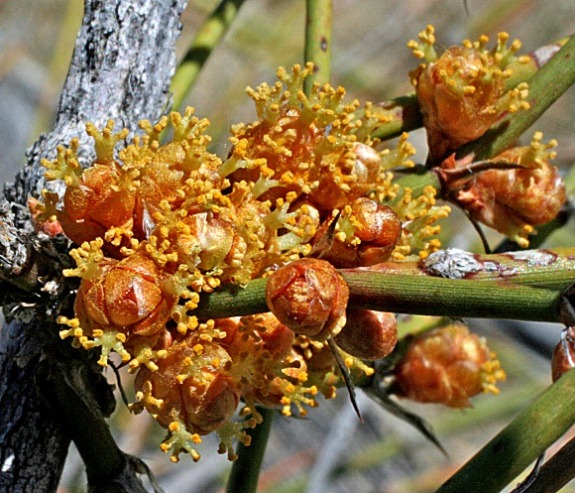Home » natural health »
Brain Stimulants
ST-JOHN’S-WORT (HYPERICUM)
St-John’s-wort is another example of a natural substance that could be awarded treatment of choice status – in this case, as an antidepressant. Its key ingredient, hypericin, elevates the spirits of people with mild to moderate depression. Scientists researching the herb administered 300-1,000 mg in eight different controlled studies, along with standard antidepressants. However, the drugs caused 2.67 times the number of side effects. Moreover, fifteen other controlled studies have demonstrated hypericum’s efficacy. I prescribe it frequently for depression, and most of my patients feel a discernible improvement in mood after taking the equivalent dosage of 30 drops or so of the extract twice a day. Health food stores also provide capsules of 300 mg, often taken three times daily.
In addition, St-John’s-wort fights influenza and Epstein-Barr, among other viruses. Preliminary research suggests a role in treating AIDS (it knocks out the virus in test tube studies), although clinical trials of people with HIV have, by and large, been disappointing. Our group of AIDS patients seems to have responded when we administered it intravenously; at the very least, it helped to lift the spirits of those who were depressed.
EPHEDRA (MA HUANG)
This supplement offers a most important lesson about herbal medicine. A good number of drugs, as I have explained, are extracted or otherwise derived from plants. Many plants, however, have a pharmaceutical effect in their natural state. Ephedra, or ma huang, as it’s also known, may be freely sold as an herb, but it really is a drug. As such, we should avoid it with the respectful caution we normally reserve for pharmaceuticals.
Ephedra is nature’s source of ephedrine, an adrenalinelike drug that suppresses appetite, dilates bronchial passages and stimulates metabolism, among other actions. Health food stores have crammed their shelves in recent years with ‘natural’ diet aids and mental stimulants that contain the herb. It’s all a ruse in my opinion, to sucker people into taking amphetaminelike medications under the false assumption that they’ve tapped into the wonders of herbal medicine. This widespread cavalier use also hands those who regulate these things a perfect pretext for interfering with the availability of natural supplements. There is ample reason to be concerned with the agency’s actions against safe and effective supplements.
Ephedra will indeed encourage weight loss, partly by suppressing your desire to eat and partly by revving up the metabolism. The advantages, however, are temporary and illusory. After you stop taking the herb, your appetite comes back stronger than before, and your once accelerated metabolism slows to its previous rate. You then gain weight, often more than you lost. As many dieters regrettably discover, ephedra is useless and counterproductive in the long haul, and controlling obesity is a very long haul.
As a central nervous system stimulant, the herb is also potentially harmful, specifically for anyone with high blood pressure, diabetes or heart disease. All of these illnesses, by the way, are common among overweight people.
– Ephedra heightens anxiety, interferes with sleep and makes you sweat profusely.
– It also may irritate the prostate gland, perhaps enough to trigger benign enlargement.
The only positive treatment role is as a bron- chodilator. Some over-the-counter asthma medications contain ephedrine as an active ingredient, but they should be used only occasionally, if at all. Other herbs and nutrients, such as magnesium, fish oils, vitamin С and pantethine, are much safer.
GOTU KOLA
This remarkable Asian plant (Centella asiatica) suffers from a little therapeutic typecasting, to which I suppose I am contributing. It works so well as a brain energizer or mental pick-me-up that the public tends to overlook its other health-promoting features.
Because of an apparent ability to nurture skin and connective tissue, the herb gives us both cosmetic and clinical support in treating skin-related problems. It accelerates wound healing and improves cellulite.
Centella is probably the herb of choice in treating varicose veins and phlebitis. It speeds up healing, improves circulation and reduces ankle swelling. People with scleroderma, a serious internal overgrowth of connective tissue throughout the body, might benefit as well.
There is also some evidence that gotu kola energizes the brain. Some experts have speculated that it prompts the body to manufacture choline, which might explain why it can enhance brain function in mentally retarded children. The standard dose of gotu kola for the indications I have discussed is 60-120 mg daily of the titrated extract of Centella asiatica.






0 Comments
You can be the first one to leave a comment.